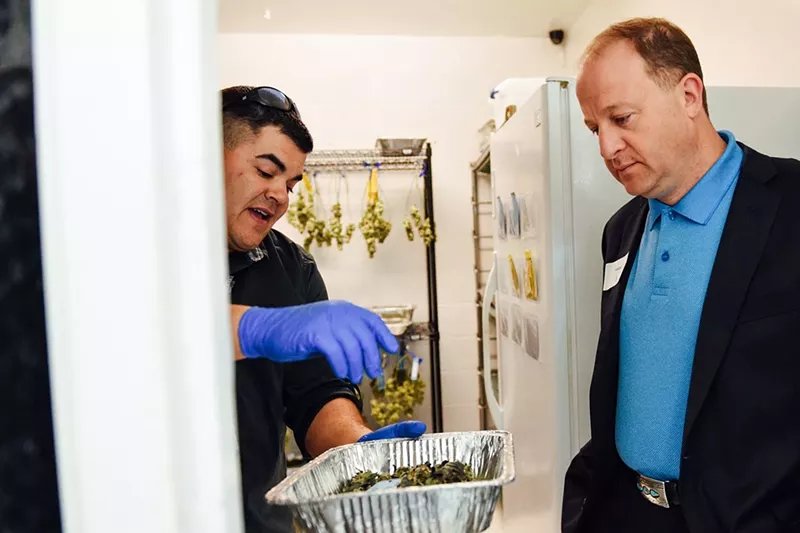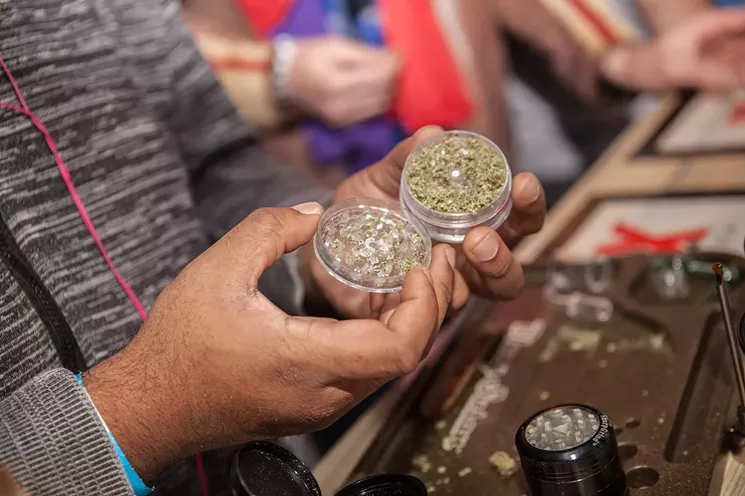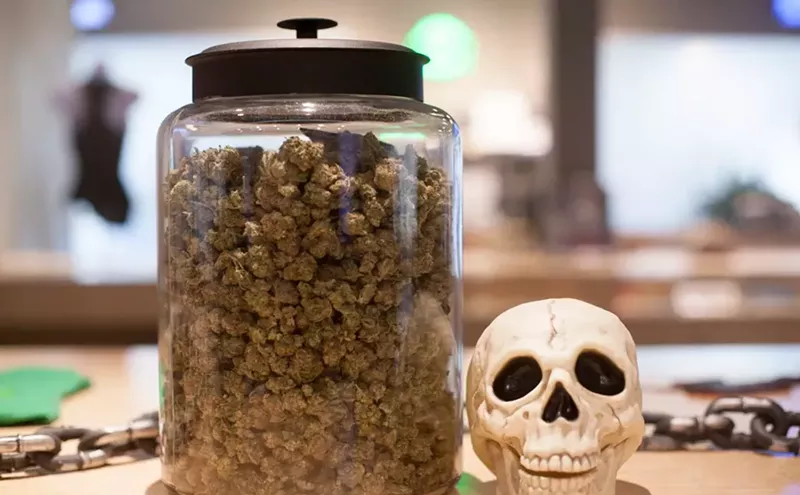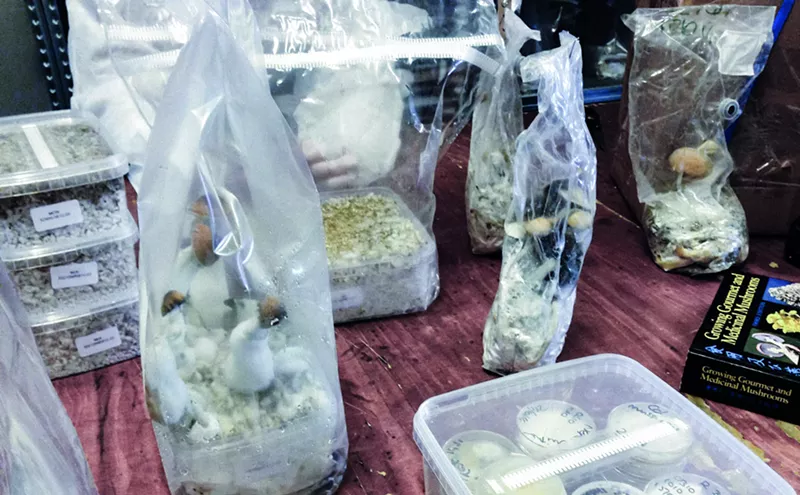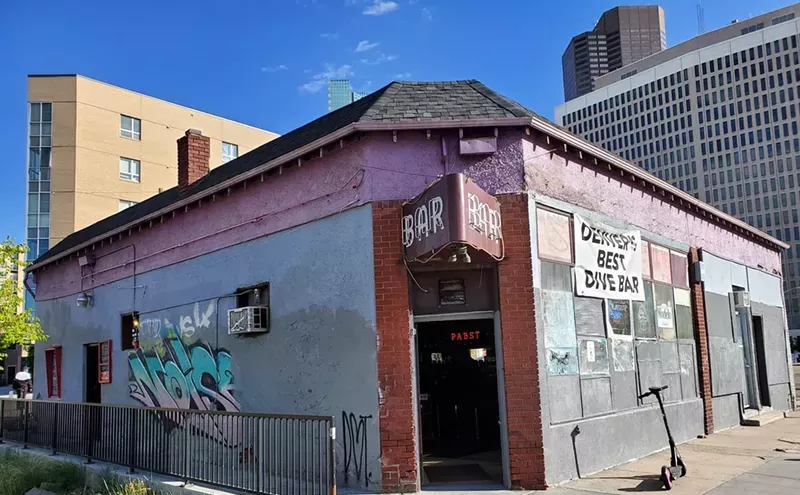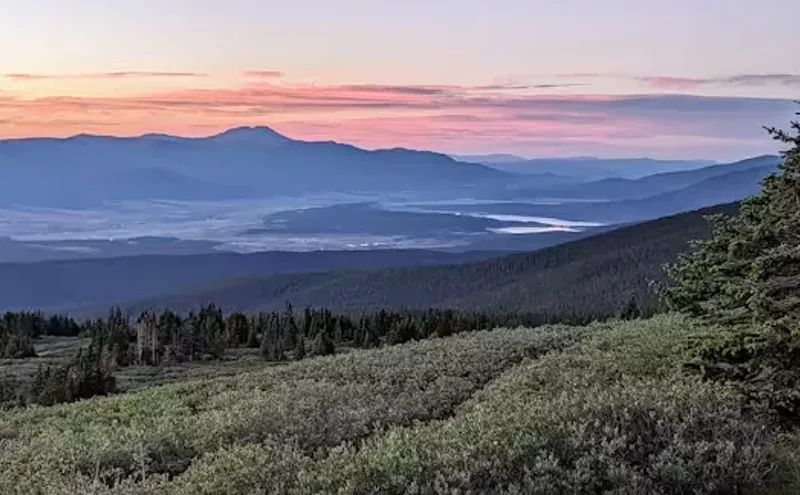With a few strokes of his pen, Governor Jared Polis ushered in the most change to Colorado's marijuana landscape in a single day since voters approved recreational pot in 2012.
Inside a sweaty, packed governor's office at the Capitol on Wednesday, May 29, Polis approved bills that legalized social marijuana consumption and commercial delivery and opened the state's pot industry to public investors, as well as measures that significantly overhauled and expanded both the medical and recreational marijuana sectors.
"We really have an opportunity with a series of bills that we're going to sign...to really help make sure that Colorado can maintain its leadership position in job creation in the cannabis industry," Polis said before signing the bills. "We can't rest on our laurels as one of the first states to legalize marijuana through Amendment 64, which the voters chose to pass."
Marijuana advocates believe 2019 to be the most successful legislative session yet for the plant, so we combed through the laws recently signed by the governor to highlight some of the biggest changes.
Social consumption will finally be legal
The bill that received that most attention during Polis's signing spree was House Bill 1230, which allows restaurants, hotels, music venues and other businesses to apply for social pot use permits and dispensaries to apply for a tasting room license similar to that of a brewery — if their respective town or county decided to allow them, as local governments must still opt in to the program.
If your local jurisdiction does allow social consumption licenses, non-dispensary businesses could also apply for limited pot sales, while mobile marijuana lounges such as tour buses and limousines will also be licensed but cannot sell marijuana; temporary licenses for special events will be available, too. None of these entities could have an active liquor license and allow social pot use, however.
And so will delivery
House Bill 1234 will eventually bring marijuana to doorsteps. Medical marijuana delivery could begin as early as 2020, and recreational as early as 2021. Municipalities will have to opt in to this program, too, and the state Marijuana Enforcement Division will have heavy input into the law's details during rule-making sessions. The industry was split on the measure and language that allowed third-party delivery businesses, but it looks like we can order a smoke and a pancake to our homes soon.
Outside investors and publicly traded companies can invest in the pot industry
Another controversial effort among the marijuana industry because of fears of further consolidation and corporate influence, House Bill 1090 opens the state's cannabis industry to out-of-state investors and capital, including publicly held companies and large venture funds. It also permits investors to own smaller stakes (less than 10 percent) in a pot business. Advocates of the measure believe the move was necessary to keep Colorado competitive as more states legalize recreational marijuana and allow similar investment opportunities.
Medical marijuana access significantly expanded
The potential access to medical marijuana in Colorado exponentially increased through a series of laws Polis signed in April and May. During his recent spree, Polis signed a medical marijuana sunset law that allows doctors, dentists (and some nurses) and anyone with prescribing power and a "valid license to practice within his or her scope of practice" to recommend medical marijuana. Days earlier, he signed a new law that gives doctors the right to recommend medical marijuana in lieu of opioid medications. The new medical marijuana cards would be valid for a length of time determined by the recommending doctor instead of the standard one year that patients with other conditions currently see.
In April, the governor signed House Bill 1028, which added autism spectrum disorder to the state's list of qualified medical marijuana conditions.
New social equity efforts
Legalized via a wide-ranging bill that addresses sunsetting recreational pot laws, newly created "accelerator licenses" will be reserved for people who have lived in low-income areas of Colorado for five of the past ten years. These micro-licenses were created to enable newer, smaller businesses to use the facilities of established companies as they research and create their own cannabis products, which they would completely own. However, the MED still has to hammer out the details of the new business licenses.
Another change via the recreational sunset bill changes a former state law that banned anyone from becoming a licensed marijuana employee if they were convicted of a felony within the past five years, or of a drug felony within the past ten years. Marijuana and minority advocates believed the rule excludes certain demographics unfairly affected by the War on Drugs, so the new law removes the special drug-felon ban and cuts the five-year ban for felons to three years.

Audio By Carbonatix
[
{
"name": "GPT - Billboard - Slot Inline - Content - Labeled - No Desktop",
"component": "23668565",
"insertPoint": "2",
"requiredCountToDisplay": "2"
},{
"name": "STN Player - Float - Mobile Only ",
"component": "23853568",
"insertPoint": "2",
"requiredCountToDisplay": "2"
},{
"name": "Editor Picks",
"component": "17242653",
"insertPoint": "4",
"requiredCountToDisplay": "1"
},{
"name": "Inline Links",
"component": "18838239",
"insertPoint": "8th",
"startingPoint": 8,
"requiredCountToDisplay": "7",
"maxInsertions": 25
},{
"name": "GPT - 2x Rectangles Desktop, Tower on Mobile - Labeled",
"component": "24956856",
"insertPoint": "8th",
"startingPoint": 8,
"requiredCountToDisplay": "7",
"maxInsertions": 25
},{
"name": "Inline Links",
"component": "18838239",
"insertPoint": "8th",
"startingPoint": 12,
"requiredCountToDisplay": "11",
"maxInsertions": 25
},{
"name": "GPT - Leaderboard to Tower - Slot Auto-select - Labeled",
"component": "17676724",
"insertPoint": "8th",
"startingPoint": 12,
"requiredCountToDisplay": "11",
"maxInsertions": 25
}
]

